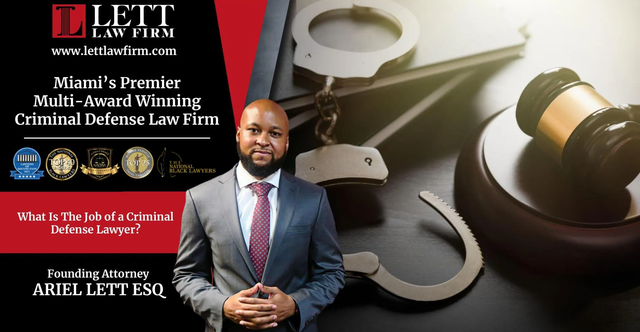My Son Was Driving My Car and Had an Accident
Oh, no! My son was driving my car and had an accident. What should I do? Your mind is racing as you, no doubt, rush to the accident scene. You are likely worried sick about your son first and foremost. At the same time, however, there are numerous other concerns that may be swirling through your head. Who is going to pay for the damages to your car? Will the insurance rates for your car go up? And what if someone was injured in the accident? These are all valid concerns – ones that we will help you address in this article. First, however, let us just take a few deep breaths and try to remain calm. After all, the only thing worse than your son having an accident is making a series of rash decisions in the aftermath brought on by panic.
Who is Responsible?
When your son was driving your car and had an accident, you understandably want to know who is responsible. The answer to this question might not be immediately clear. You’re probably wondering if it is your son or yourself. Ultimately, the answer to this question will hinge on a number of factors, including whose name the car is registered to, whether or not your son lives with you, and whether or not your son has been added to your car insurance policy. If you added your son to your policy, then you likely won’t be held responsible for the accident – even if your son lives on his own and is over the age of 18.
However, if you did not add your son to your insurance policy (and depending on the answers to the other questions in the previous paragraph), then you may be held partially or totally responsible for the damages that were caused by the accident. As you can see, this is a complex issue. As such, it is always best to consult with an attorney if you are unsure about who is responsible for the accident.
If someone other than your son caused the accident, then you might be able to file a claim with their insurance company. This can be a tricky process. As such, you should always consult with an attorney before you take this step.
What Should I Do Now?
The first thing that you should do after your son has been in an accident is to make sure that he is okay. Once you have ascertained that he is not seriously injured, you can then begin to assess the damage to your car. If the damage is minor, then you may be able to file a claim with your own insurance company. However, if the damage is severe, then you may need to file a claim with the other driver’s insurance company.
In either case, you will need to provide the insurance company with the following information:
- The date, time, and location of the accident
- The names and contact information of all drivers involved in the accident
- The make, model, and year of all vehicles involved in the accident
- The insurance policy numbers for all drivers involved in the accident
- A copy of the police report
If you are experiencing any pain or discomfort as a result of the accident, then you should see a doctor as soon as possible. You may have injuries that are not immediately apparent. Insurance companies are notorious for trying to pay out as little as possible on claims. As such, it is always best to have a doctor document your injuries as soon as possible after the accident. This will make it much more difficult for the insurance company to deny your claim.
How Can I Avoid This From Happening Again?
The best way to avoid your son from having another accident is to talk to him about safe driving habits. Make sure that he understands the importance of obeying the speed limit, wearing his seatbelt, and avoiding distractions while driving. You should also set a good example by following these same rules yourself.
In addition, you can help your son to avoid accidents by making sure that he is properly trained to drive. This means taking him to a driving school or having him practice driving with you in a safe environment. You should also make sure that your son is familiar with the car that he is driving. After all, the more familiar he is with the car, the less likely he is to have an accident.
Finally, you can help your son to avoid accidents by setting limits on his driving. For example, you may want to restrict him from driving at night or in bad weather. You may also want to limit the number of passengers that he can have in the car with him. These restrictions can serve two main functions. First, they can help your son to avoid dangerous situations. Second, they can give you peace of mind knowing that your son is less likely to be involved in an accident.
My Son Was Driving My Car and Had an Accident
Oh no! Your heart sinks as you hear those dreaded words: “My son was driving my car and had an accident.” The initial shock and worry are overwhelming, but it’s crucial to remain calm and understand the legal implications. Accidents can be traumatic, and navigating the aftermath can be challenging, especially when it involves your loved ones.
Who Is Liable for the Accident?
Determining liability after a car accident involving a minor driving a parent’s vehicle can be complex. Generally, the driver of the vehicle is held responsible for any damages caused during the accident. This is known as “negligence,” which refers to the failure to exercise reasonable care while operating a vehicle.
However, in some cases, parents or vehicle owners may also face liability. If the parent knew or should have known that their child was an unsafe or unlicensed driver, they could be held accountable for the accident.
Additionally, if the vehicle was defective or unsafe, the manufacturer or mechanic who performed maintenance on it could potentially bear some liability.
It’s important to consult with an attorney to determine the specific circumstances of the accident and identify the parties who may be liable for damages.
Remember, seeking legal advice promptly can help protect your rights and ensure that you receive fair compensation for any losses or injuries incurred.
What to Do If Your Son Was Driving Your Car and Had an Accident
If your son was driving your car and had an accident, it can be a stressful and confusing time. Here are some steps you should take:
First, stay calm and assess the situation. Check to see if your son or anyone else is injured. If there are injuries, call 911 immediately.
Once you’ve checked for injuries, call the police to report the accident. Be sure to get the names and contact information of any witnesses. You should also take pictures of the damage to both vehicles.
Get the Names and Contact Information of Any Witnesses
If there are any witnesses to the accident, be sure to get their names and contact information. This information can be helpful to the police and your insurance company when they are investigating the accident.
Here are some tips for getting the names and contact information of witnesses:
- Be polite and respectful.
- Explain that you are trying to gather information about the accident.
- Ask for their name, contact information, and a brief statement of what they saw.
- Thank them for their help.
If you cannot get the names and contact information of witnesses at the scene of the accident, you can try to find them later by contacting the police or your insurance company.
My Son Was Driving My Car and Had an Accident
It can be a distressing situation when your son is involved in a car accident while driving your car. Amidst the emotional turmoil, it’s imperative to know what steps to take to protect your son’s rights and minimize the impact on you and your family. This article will guide you through the crucial steps to follow in such an unfortunate event.
What to Do If Your Son Was Not at Fault for the Accident
If your son was blameless in the accident, you can still seek compensation from the other driver’s insurance company. Here are the steps to consider:
- Gather evidence: Collect all relevant documents, such as the police report, insurance information, and medical records.
- Consult an attorney: An experienced attorney can advise you on your rights and help you navigate the insurance claims process.
- Negotiate with the insurance company: Present your case clearly and provide evidence to support your son’s innocence. Be prepared to negotiate a fair settlement.
- File a lawsuit if necessary: If negotiations fail, you may need to consider filing a lawsuit to pursue your claim.
What to Do If Your Son Was Partially at Fault for the Accident
Even if your son shares some degree of fault, you may still be able to recover compensation. Here’s what to do:
- Determine your son’s percentage of fault: This will impact the amount of compensation you can recover.
- Consult an attorney: Legal advice is crucial to understand your rights and options.
- Negotiate with the insurance company: As in the case of non-fault accidents, negotiate a settlement that fairly compensates you.
- File a lawsuit if necessary: If negotiations reach an impasse, consider legal action.
What to Do If Your Son Was Fully at Fault for the Accident
If your son was entirely responsible for the accident, you may not be able to recover any compensation from the other driver’s insurance company. However, you may still have options to protect yourself financially:
- Check your own auto insurance policy for coverage.
- Consider legal action against your son if his negligence resulted in significant financial losses.
Additional Considerations
- Stay calm and composed: It’s understandable to be upset, but it’s crucial to remain calm and think clearly.
- Document everything: Take photographs of the accident scene, gather witness statements, and keep a record of all expenses related to the accident.
- Seek support: Don’t hesitate to reach out to family, friends, or a mental health professional for emotional support during this challenging time.
My Son Was Driving My Car and Had an Accident
After an accident, you could be feeling overwhelmed, but there are some key steps you need to take. It is crucial to handle the aftermath in the most efficient and responsible way possible. Here is what you need to do if your son was driving your car and had an accident.
Report the Accident to Your Insurance Company
Make sure to report the accident to your insurance company as soon as possible. If your son is not yet covered on your insurance policy, you will need to inform them and add him as a driver. The insurance provider will be able to guide you through the claims process and help you understand your coverage options.
Gather Evidence
It is important to collect as much evidence as possible at the scene of the accident. This may include taking photos of the damage to both vehicles involved, exchanging contact information with any witnesses, and getting a copy of the police report. You can also reach out to the other driver and their insurance company to collect their account of what happened.
Seek Medical Attention
Even if you do not feel injured, it is important to seek medical attention after an accident to rule out any underlying injuries. Some injuries may not be immediately apparent, so it is best to have a doctor evaluate you.
What to Do If Your Son Was Driving Without a License
If your son was driving your car without a license, you may be held liable for the accident. It is important to check your insurance policy to see if you have coverage for this type of situation. You should also cooperate with the police and insurance companies, and consult with a lawyer to understand your legal options.
Contact a Lawyer
Consulting with a lawyer can be beneficial if there are any disputes or complexities involving the accident. They can help you understand your rights and options, negotiate with insurance companies, and represent you in court if necessary. Choose a lawyer who is experienced in handling car accident cases and has a good reputation.
My Son Was Driving My Car and Had an Accident: What Should I Do?
If your son was driving your car and had an accident, you may be wondering what your rights and responsibilities are. Here’s what you need to know.
Who Is Liable for the Accident?
The first step is to determine who is liable for the accident. This will depend on the specific circumstances of the accident, but in general, the driver who caused the accident is liable for the damages. If your son was driving your car and caused the accident, you may be liable for the damages if your son was driving with your permission.
What Should You Do After the Accident?
If your son was driving your car and had an accident, there are a few things you should do:
1. Call the police.
2. Exchange insurance information with the other driver(s) involved in the accident.
3. Take photos of the accident scene.
4. Get a copy of the police report.
5. Contact your insurance company.
6. Hire an attorney if necessary.
What Are Your Rights?
As the owner of the car, you have certain rights after an accident. These rights include the right to:
1. File a claim with your insurance company.
2. Sue the driver who caused the accident.
3. Recover damages for your losses.
What Are Your Responsibilities?
As the owner of the car, you also have certain responsibilities after an accident. These responsibilities include the responsibility to:
1. Cooperate with your insurance company.
2. Pay any deductibles or other costs associated with the accident.
3. Reimburse your insurance company for any payments it makes on your behalf.
Conclusion
If your son was driving your car and had an accident, it is important to know your rights and responsibilities. By following the steps outlined in this article, you can help to protect yourself and your son.





Leave a Reply